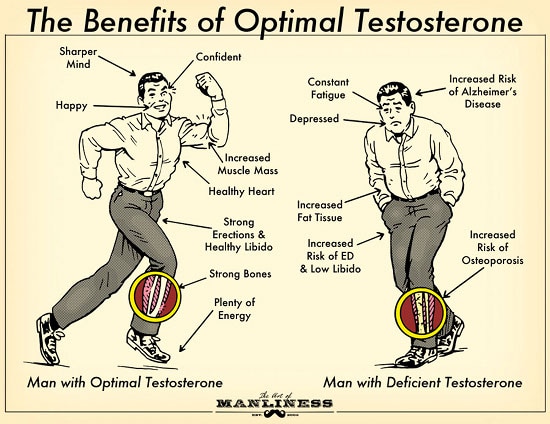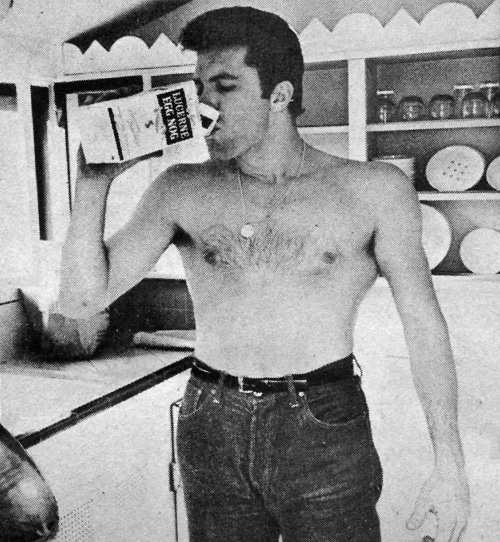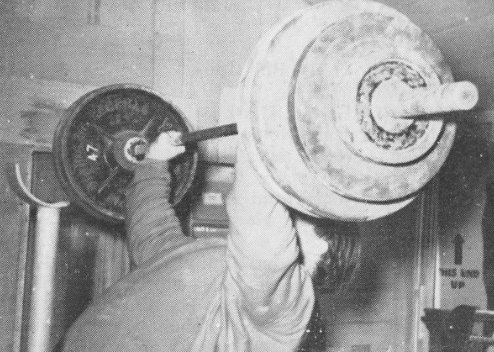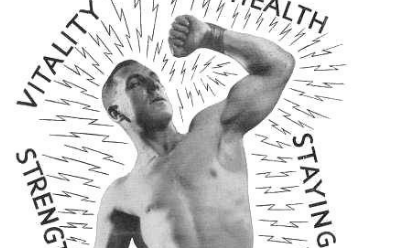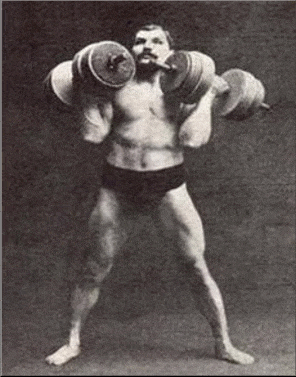
Editor’s note: This is a guest post from Kamal Patel, MPH
Yesterday, we talked about muscle-building supplements. And while that’s a big market full of dubious claims, nothing can compare to the marketing chicanery of male virility/sexuality boosters.
There are supplements out there that promise to increase your libido while also upping your testosterone. There are over the counter testosterone supplements and prescription supplements. There are supplements that market themselves as T-boosters, while also touting themselves as an aphrodisiac. And then there are companies that claim to have developed a testosterone pill that contains the triumvirate of male-enhancing properties: T-boosting, libido-enhancing, and even fertility-increasing. These supplement makers sometimes throw in an additional claim of muscle gain as well.
For guys who are mainly looking to increase their testosterone, these extra benefits can seem like the icing on the cake, which makes these supplements highly marketable. But when it comes to actually boosting T, do they really work?
The Libido Paradox
Supplements that tout themselves foremost as libido enhancers make up the majority of the market for testosterone boosters. But most don’t have any effect on testosterone levels. So why do people buy them like crazy?
Simple: you think they’re working.
When your testosterone levels go up, so does your libido. Unfortunately, the inverse is not true — your libido levels can go up without your testosterone levels also going up. And that’s how most supposed T-boosters “work”: they make you feel ornery, leading you to think that your T levels are appreciably higher, when they actually aren’t. In rare cases, supplementation will result in a 20% testosterone increase. This kind of improvement may sound impressive, but is irrelevant for practical purposes.
If you treat these supplements for what they are (libido boosters), you may be happy with the results.
Can I boost my testosterone or not?
Legitimate, working testosterone boosters do exist, but they’re not very exciting. They’re not life-changing because, at most, they’ll increase testosterone levels by 20-50%. Compare that to a low-dose steroid cycle, which offers a 300% increase minimum.
You may not be able to tell whether or not a supplement is working without getting a blood test. Even then, blood tests only take your T levels at that exact moment, which can fluctuate based on a lot of different variables. Bottom line: it’s easy to promise a testosterone boost when very few people are actually checking their testosterone levels.
Below we offer a breakdown of the most popular testosterone boosters out there and an assessment as to their effectiveness.
A Breakdown of the Most Popular Testosterone Boosters
Tribulus Terrestris
Tribulus terrestris is the #1 selling testosterone booster, and the best example of a supplement that increases libido, but has no effect on testosterone.
Anecdotally (and traditionally, in East Asia), it’s worked well for men seeking to increase their confidence and libido, but studies have not confirmed this kind of effect. While preliminary evidence suggests that Tribulus can protect the body from stress, it definitely has no effect on testosterone.
D-Aspartic Acid
D-Aspartic Acid (D-AA) catapulted into the spotlight after a study showed supplementing D-AA could increase testosterone up to 42% after just 12 days. This sparked a frenzy of D-AA supplementation. Within a week, people were reporting greatly increased libido, as well as increased testicle size.
Unfortunately, another study done that spanned a longer time period found that after about a month of D-AA supplementation, testosterone levels returned to normal. A month isn’t long enough for elevated testosterone levels to have an effect on muscle growth and development.
D-AA has been found to provide increased fertility and testosterone when supplemented by infertile men, but it has no effect on athletes and people with normal testosterone levels.
Zinc and Magnesium
Zinc and magnesium (both part of the ZMA formula) are frequently recommended as testosterone boosters for athletes. These minerals are lost through sweat and during exercise.
If you’re deficient, supplementing with zinc or magnesium can take your testosterone levels to your normal baseline. Additional zinc or magnesium will not increase testosterone above normal levels.
Maca
Maca is a vegetable marketed as a “non-hormonal” libido enhancer. It is popular among post-menopausal women and younger women who are trying to avoid interactions with contraceptives.
Maca’s libido-enhancing properties occur after prolonged supplementation, rather than immediately after a single dose. More research is needed to determine how maca works in the body to increase libido non-hormonally. Maca does not boost testosterone.
Fenugreek
Fenugreek is technically a testosterone booster. It contains 5-alpha reductase inhibitors, which prevent testosterone from being turned into dihydrotestosterone (DHT). This results in:
- A relative increase in testosterone
- A decrease in DHT, which is thought to lower libido
Even though it may increase testosterone a bit, it’s not to a level that would cause any appreciable gain in muscle.
Fenugreek has other ways to mediate libido. Despite the decrease in DHT, fenugreek supplementation may actually improve sexual function and well-being.
Strangely enough, fenugreek supplementation causes urine and sweat to smell like maple syrup. This libido enhancer obviously works best when taken in Canada, complete with a buffalo plaid shirt and hairy chest (we’re Canadian-based, so we can vouch for this).
Tongkat Ali
Tongkat ali is a Malaysian herb that has traditionally been used as an aphrodisiac.
Tongkat ali provides a very mild testosterone boost when supplemented by infertile people, but it has no effect on healthy men.
Tongkat ali is, however, effective at increasing libido. Tongkat ali is not as popular as maca and Tribulus terrestris because it is more expensive, but it could be worth trying, as long as you’re looking for a boost in libido, not testosterone.
Mucuna Pruriens
Mucuna pruriens is a plant used as a source for L-DOPA, the precursor to dopamine. Testosterone is not the only hormone to affect libido. Dopamine is the other major player, while many others have minor roles. Increasing dopamine increases libido, and increasing L-DOPA levels results in increased dopamine levels in the brain.
L-DOPA is sometimes called a testosterone booster, because of the way it interacts with prolactin. After a steroid cycle, prolactin levels tend to be higher than usual because of the elevated testosterone. Prolactin negatively regulates testosterone and libido, while enhancing estrogen signaling.
Prolactin is suppressed by dopamine activity. Since supplementing L-DOPA suppresses prolactin (by increasing dopamine activity), supplementing L-DOPA would increase testosterone if prolactin was abnormally high. The average, healthy male does not have elevated prolactin (unless he’s on steroids), so supplementing with L-DOPA will not increase your testosterone levels.
Vitamin D
Vitamin D stepped onto the testosterone booster shelf after a single study found that overweight men taking vitamin D experienced an increase in testosterone. This study has not been replicated, but since then, vitamin D has been making its way into a variety of dietary supplements under the guise of raising testosterone levels.
Vitamin D supplementation may potentially boost testosterone levels, but further research is needed to determine if it really has an effect on the testosterone levels of young people and athletes. The truth is likely similar to zinc and magnesium — being in a deficient state causes your testosterone levels to drop below baseline, and supplementing it just takes you right back to baseline (but not any higher).
The Real Science of Nutrition and Supplements — My Podcast With Kamal Patel
There Is No Magic Pill
While it would be nice to buy a testosterone pill from the local supplement store and have your testosterone levels go up, such a magic pill does not exist. As you can see from the above rundown, while a few supplements may be somewhat effective if your T levels are already low, none will significantly raise your testosterone above a baseline level. Thus, the basics of keeping your T levels high remain pretty simple:
- Lift heavy weights
- Get enough sleep
- Don’t carry around too much excess fat
- Ensure your diet is varied and includes leafy greens and animal fats
If you do have a condition causing low T, your doctor can prescribe pharmaceuticals. Otherwise, the steps we outlined above are the way to go.
Now that we’ve debunked a lot of the hype surrounding both supposed muscle-building and testosterone-boosting supplements, you may be wondering if supplements in general are useless.
In Conclusion: Do Testosterone Boosters Actually Work?
Many do; a few don’t.
The supplement industry was re-regulated in the early 1990s. While this had a positive effect (spurred on by research), the downside was that a lot of technically true statements could be made. Using rat studies, single case studies, and petri-dish studies, it becomes easy to make grandiose claims that don’t pan out in an actual human body.
The most important step in supplementation is researching and knowing what you’re putting into your body. There are potent and effective supplements out there (bacopa for memory, berberine for blood sugar, and so forth), and they should be taken in a targeted manner.
Figure out any potential deficiencies, figure out your goals, and then identify supplements that you may want to take.
You can find all of our citations on Examine.com.
______________________________________
Kamal Patel is the director of Examine.com. He has an MBA and an MPH (Master of Public Health) from Johns Hopkins University, and was pursuing his PhD in nutrition when he opted to go on hiatus to join Examine.com. He is dedicated in making scientific research in nutrition and supplementation accessible to everyone.
Tags: Testosterone

